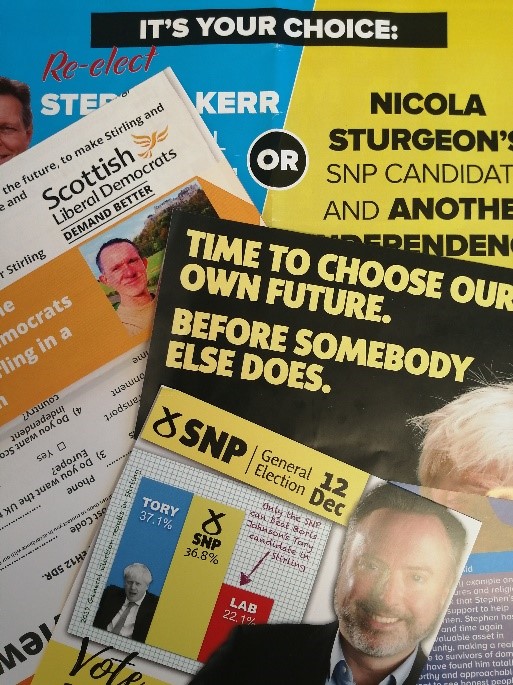Generally in archives, we accession collections which come to us fully formed, already a whole. A good example of this would be the personal archives of public figures, of which the Scottish Political Archive (SPA) has quite a few. In the case of Kenyon Wright, for example, we received all his personal papers after his death, given to us in their entirety. In the case of Jack McConnell’s papers, we received everything that he wanted to donate but much is still in his possession. Whether or not such papers belong to someone who has passed away or is still alive, the curatorial element to the collection is theirs. Throughout the course of that person’s life, they have chosen what to bin and what to keep and those choices have probably been made without even really thinking that one day all of what remains will be donated to an archive and kept as a historical record. We then take in this archive, keep it in the original order as much as possible and make available what we can for research purposes. There are many collections which come to us with gaps (deliberate or accidental) and tantalising hints at something not fully explained.
But here at SPA, we often practise a usually little-used method of acquisition – contemporary collecting. Contemporary collecting means that we have an element of curatorial oversight to what we’re collecting – we put out a call for something specific to make sure it is kept for long term preservation. Because we have such a clear collection policy, there are some things we know for certain that we want to keep and we actively go out into the wild to get it. For example, every election we call out for election leaflets and ephemera that get posted through letterboxes all over Scotland. We want to keep a record of what political messages are being sent out into particular constituencies and we always try to represent politics right across Scotland rather than just the big cities. Responses to such collecting projects are usually wonderful and volunteers take the time to post us the leaflets that have dropped through their letterbox. Without specifically asking for these items, we might never be able to keep such a record – how many people out there are likely to save such things for posterity rather than just throwing them in the bin? Not many, and fewer still whose archives might make it to us one day.
Coronavirus and lockdown saw our contemporary collecting take a new focus. It felt natural to us to want to document the mechanics of lockdown, it might be a health crisis but the politics of the situation are interesting, varied and deserve to be documented for posterity. Interestingly, many, many archives across the UK felt the same way about coronavirus and contemporary collecting swept the record keeping world as dozens of archive services launched their first ever contemporary collecting projects. The urge to do something, to record important events and decisions and to pass on knowledge into the future are key things that we think engage lots of people and especially at the start of lockdown when many people felt like there was very little to do or very little they could do to help, calls for material were well received.
We called for photographs of public information signs, markings on pavements and in supermarkets showing social distancing rules, rainbows and teddy bears in house windows and banners and signs relating to the times. From this we’ll be keeping a record of the key messages related to members of the public but also the key messages that members of the public sent out among themselves – and we’ll be able to see if this varied across the country. The coronavirus contemporary collecting is ongoing as we navigate our way to a new normal and lockdown eases. If you would like to send in images that you have taken since March, please do email them to scottishpoliticalarchive@stir.ac.uk.

